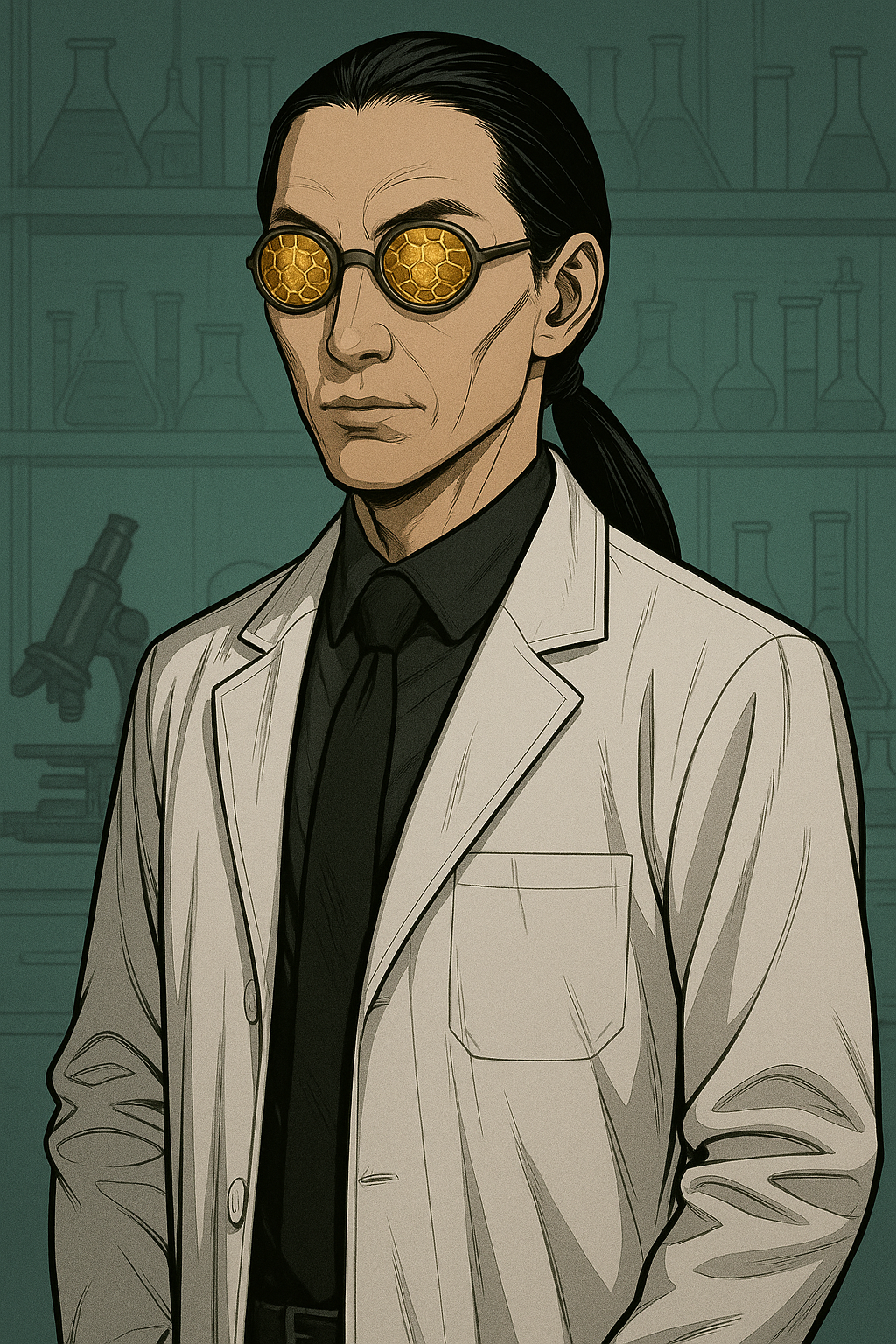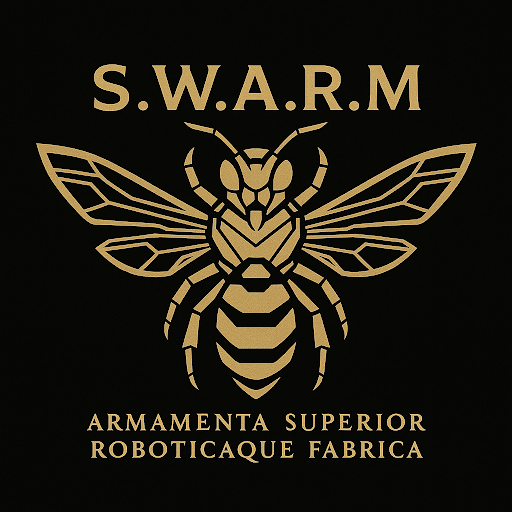Doctor Chrysalis
Background
The grandson of infamous WWII Super Scientist Professor Pathogen, Kenji Watanabe was raised not in shame, but reverence for his grandfather’s “purified science.” Shielded from the world’s judgment by a network of loyalists, Kenji was steeped in virology, genetics, and radical bioethics from a young age. Rather than inheriting his grandfather’s hatred or ideology, Kenji inherited only his ruthless curiosity and belief in evolution through suffering.
Obsessed with insects from childhood—particularly their capacity for transformation, adaptation, and eusocial order—he began to model his genetic work after them. To him, insects represent the pinnacle of biological design: efficient, resilient, unburdened by morality or ego.
He was eventually recruited by S.W.A.R.M. not just for his lineage, but because he had already begun building artificial chitin grafts, gene-warped larvae, and symbiotic parasites. Under their auspices, Kenji became Doctor Chrysalis, the architect of S.W.A.R.M.’s bio-alteration division. From viral symbiotes to fully engineered metahumans, he is the hand that remakes flesh into forms more “fit.”
He speaks of transformation with reverence. To Chrysalis, metamorphosis is not a metaphor—it is destiny.
Personality
Doctor Chrysalis is serene, almost monastic in demeanor—until he speaks of mutation. Then, his tone turns poetic, nearly ecstatic. He sees no horror in his work—only progress. The screaming of a mutating subject is no more tragic to him than the struggle of a caterpillar inside its cocoon.
He disdains cruelty for its own sake—considering Queen Vespula’s parasitism or Bombardier Beetle’s torment as "inefficient"—but he values suffering as a necessary stage in rebirth.
Chrysalis is deeply loyal to the Hive Master, who he views as the shepherd of this new world—and himself as its gardener. He harbors rivalry toward Dr. Zandt, whose cybernetics he sees as “cold, static artifice,” compared to his own “living perfection.” He speaks softly. His voice carries. And when he offers you “a better form,” it is not a question—it is a promise.
The grandson of infamous WWII Super Scientist Professor Pathogen, Kenji Watanabe was raised not in shame, but reverence for his grandfather’s “purified science.” Shielded from the world’s judgment by a network of loyalists, Kenji was steeped in virology, genetics, and radical bioethics from a young age. Rather than inheriting his grandfather’s hatred or ideology, Kenji inherited only his ruthless curiosity and belief in evolution through suffering.
Obsessed with insects from childhood—particularly their capacity for transformation, adaptation, and eusocial order—he began to model his genetic work after them. To him, insects represent the pinnacle of biological design: efficient, resilient, unburdened by morality or ego.
He was eventually recruited by S.W.A.R.M. not just for his lineage, but because he had already begun building artificial chitin grafts, gene-warped larvae, and symbiotic parasites. Under their auspices, Kenji became Doctor Chrysalis, the architect of S.W.A.R.M.’s bio-alteration division. From viral symbiotes to fully engineered metahumans, he is the hand that remakes flesh into forms more “fit.”
He speaks of transformation with reverence. To Chrysalis, metamorphosis is not a metaphor—it is destiny.
Personality
Doctor Chrysalis is serene, almost monastic in demeanor—until he speaks of mutation. Then, his tone turns poetic, nearly ecstatic. He sees no horror in his work—only progress. The screaming of a mutating subject is no more tragic to him than the struggle of a caterpillar inside its cocoon.
He disdains cruelty for its own sake—considering Queen Vespula’s parasitism or Bombardier Beetle’s torment as "inefficient"—but he values suffering as a necessary stage in rebirth.
Chrysalis is deeply loyal to the Hive Master, who he views as the shepherd of this new world—and himself as its gardener. He harbors rivalry toward Dr. Zandt, whose cybernetics he sees as “cold, static artifice,” compared to his own “living perfection.” He speaks softly. His voice carries. And when he offers you “a better form,” it is not a question—it is a promise.

Children




Comments